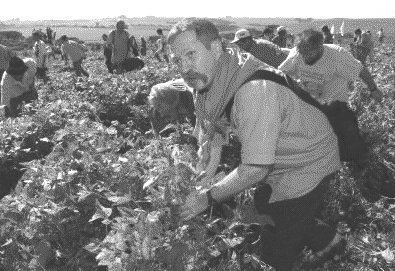Michael R. Shurkin
A third answer is that absolute anti-Zionism really is Jew-hatred, just in a different form from antisemitism. Pierre-Andre Taguieff introduced in the title of his January, 2002, book a new term: La Nouvelle Judéophobie (The New Judeophobia). Taguieff explains in Le Nouvel Observateur (n. 1942) that he prefers "judeophobia" to "anti-Semitism" because he wishes to signal that hatred of Jews is no longer grounded in race theory or articulated in terms of an opposition between Semites and Aryans. Rather, it is based on a "representation of Zionism as an incarnation of absolute evil." He argues that the new judeophobia originated in Islam and Arab nationalism, however it now extends to a movement consisting of "neo-Christian humanitarianism," "third-worldists," and anti-globalization activists. This movement "draws nourishment from a myth and feeds it in return." The myth "is constructed on the demonized figure of 'Jews-Israelis-Zionists' supported by the 'Americans' and in opposition to that, no less mythical, of the Palestinian Arab 'innocent victims.'" On one side, Taguieff continues, stands the "cosmopolitan Satan," the unholy trinity 'United States/Israel/Occident.' On the other side stands the "dominated and the oppressed." Thus the new judeophobia recycles old stereotypes such as the rich Jew and the dominating Jew under the "varnish of progressivism." The Jew is once more the stand in for capitalism, imperialism, cosmopolitanism, indeed the whole economic order.
 As for Bové, Taguieff asks rhetorically in another magazine interview (Le Point, 4/5/02) what "the defense of the true Roquefort" has to do with that of the Palestinian people. The answer, he argues, is the idea of authenticity. Palestinians are the authentic humiliated people, the "offended par excellence." For a "neo-communism that does not say its name," the struggle against Israel is an auspicious way to defend authenticity while "reactivating the anti-imperialist struggle." Otherwise, he says, he cannot explain how it is that in a March 2 rally two Trotskyite parties (the LCR and the LO) could demonstrate together with Islamicists announcing "Allah Akbar" on loud speakers and waving a Hezbollah flag. "So much for secularism!"
As for Bové, Taguieff asks rhetorically in another magazine interview (Le Point, 4/5/02) what "the defense of the true Roquefort" has to do with that of the Palestinian people. The answer, he argues, is the idea of authenticity. Palestinians are the authentic humiliated people, the "offended par excellence." For a "neo-communism that does not say its name," the struggle against Israel is an auspicious way to defend authenticity while "reactivating the anti-imperialist struggle." Otherwise, he says, he cannot explain how it is that in a March 2 rally two Trotskyite parties (the LCR and the LO) could demonstrate together with Islamicists announcing "Allah Akbar" on loud speakers and waving a Hezbollah flag. "So much for secularism!"
In France there are a number of reasons to have a bleak outlook for the future. The far-left is very vocal and influential, and thus the number of voices for moderation in their anti-Zionism remain very few. Many French Jews feel beseiged; a prominent Alsatian rabbi told me in January 2003 that he felt Jews had no future in France and he was encouraging anyone who would listen, above all his children, to emigrate to Israel. Coming from a man with roots in France that ran as deep as his, a man who is as native to Alsace as the Rhine, this is sad news.
That said, the French remain an exceptionally tolerant people. Whereas Americans slip into bigotry when they stop thinking and quickly regain their tolerance once reminded of their principles, the French tend to be intolerant only when they think too much. They manage to find in their Republican or Marxist principles reasons to be bigoted. Day to day, however, they are marvels of liberality. As the German-Jewish journalist Joseph Roth once described them, the French possess a remarkable "practical humanity." Besides, Arabs remain the prime targets for bigotry in France, not Jews.
As for judéo-beur relations, the bonds of common experience may be more powerful than they seem. Notwithstanding the antisemitism that Cherfi acknowledges, the communities are fellow immigrants, fellow minorities, fellow North Africans, and as such they usually face the same problems vis à vis the majority population and thus ought to share the same interests. In the heavily "ethnic" neighborhoods such as Belleville and Barbès in Paris, the two communities are so heavily integrated that most outsiders would never perceive that there are in fact Jews living and working among the Muslims. The "noise and the odor," to quote Chirac's offensive reference to a North African housing project (and subsequently the name of Zebda's second album), are the same. The unknown variable, of course, is how much worse the situation in the Middle East will get.

Bernard Henri-Levy on the death of Daniel Pearl
September, 2003
Is Zionism Colonialism?
June, 2003
The weird and worrying links between the radical Left and the Islamist Right
April, 2003
Fearing the Germans for the Wrong Reasons
April, 2003
Hating the French for the Right Reasons
March, 2003
Avoiding the obvious Jewish responses to the mideast crisis: a response
to Jay Michaelson
June, 2002



Surrender
Niles Goldstein
France and Antisemitism
Michael Shurkin
Energy
Jay Michaelson
No Pulp
Dan Friedman
re:vision
Raphael Cohen
Koby Israelite
Matthue Roth
Josh's Jewish Reminders
Josh Ring
Archive
Our 390 Back Pages
Saddies
David Stromberg
Zeek in Print
Fall issue now on sale
About Zeek
Events
Contact Us
Links
From previous issues:
The Failure of Anti-Despotism
Justin Weitz
War and Not-War
Dan Friedman
The Mall Balloon-Man Moment of the Spirit
Dan Friedman
